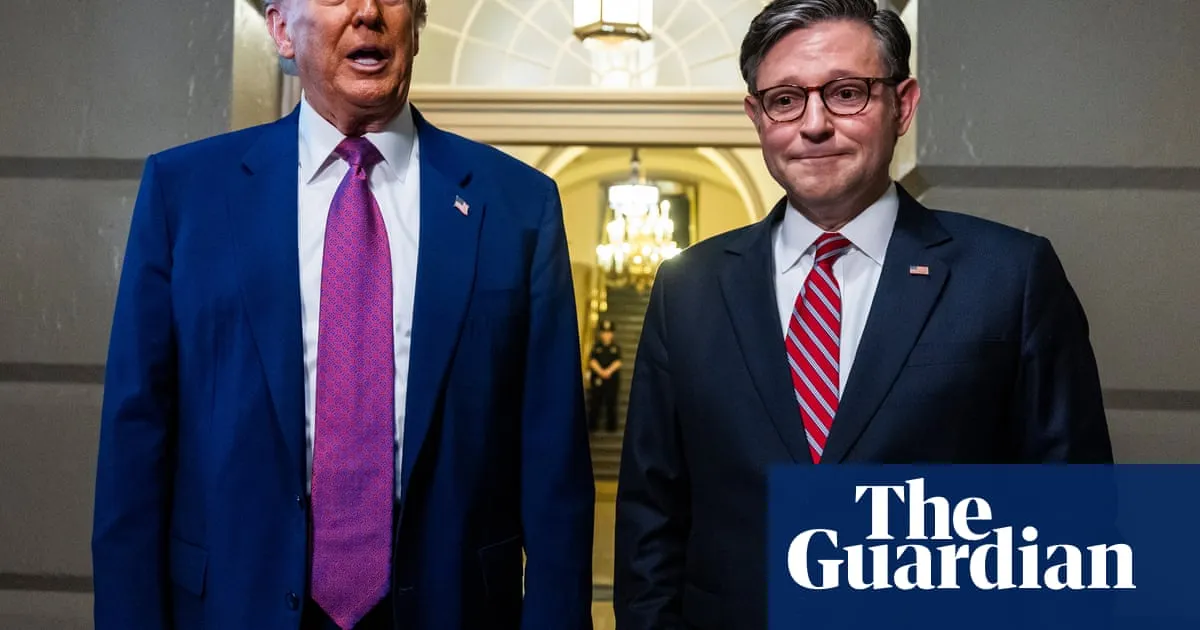
On Tuesday, former President Donald Trump traveled to the Capitol with a clear message: it’s time for the divided House Republican majority to unite and pass his extensive legislation that addresses key taxation and immigration priorities. Speaking at a closed-door meeting with Republican lawmakers in the House of Representatives, Trump encouraged representatives from both blue and red districts to set aside their differences.
During his address, Trump specifically urged lawmakers representing Democratic-led districts to abandon their insistence on an expanded State and Local Tax (SALT) deduction. He sought to alleviate concerns among moderates who feared that the proposed legislation—dubbed the One Big Beautiful Bill Act—could negatively impact the Medicaid health insurance program. "I think we have unbelievable unity. I think we’re going to get everything we want, and I think we’re going to have a great victory," Trump stated confidently as he exited the meeting.
Despite the optimism expressed by Trump, uncertainty looms regarding the bill’s passage ahead of the looming Monday deadline set by House Speaker Mike Johnson. With a slim Republican majority of just three votes in the House, the pressure is mounting. Following the meeting, at least one prominent lawmaker voiced his opposition to the bill, indicating that the president's entreaties may not have had the desired effect.
"As it stands right now, I do not support the bill," remarked New York Congressman Mike Lawler, one of the Republicans from Democratic-dominated states advocating for the restoration of the SALT deduction. The next critical event for the bill is a procedural vote scheduled for 1 AM on Wednesday, when the rules committee will convene. If the vote is successful, it will pave the way for the full House to consider the measure.
The nearly 1,100-page legislation represents Trump’s top priority in Congress, aiming to solidify several campaign promises. Key provisions include making permanent or extending tax cuts from his first term, halting taxation on tips and overtime temporarily, and funding a border wall while facilitating mass deportations of undocumented immigrants. To finance these initiatives, House Republicans are considering significant cuts to essential federal safety net programs, including Medicaid and the Supplemental Nutrition Assistance Program (SNAP).
Even with the proposed cuts to safety net programs, the bill is projected to cost approximately $3.8 trillion through 2034, raising concerns among right-wing fiscal conservatives who seek to reduce the government's growing budget deficit. Johnson and other GOP leaders have been working diligently to reconcile the demands of blue-state Republicans and moderates wary of the potential impacts on safety net programs.
As Trump arrived at the Capitol on Tuesday, he made his stance clear, insisting that Medicaid would remain untouched and that cuts would only target "waste, fraud, and abuse." Historically, SALT taxes were deductible on federal returns, but the tax cuts enacted in 2017 eliminated that benefit. Trump opposes restoring the deduction, arguing that it would unfairly benefit Democratic governors.
During the meeting, Trump conveyed a sense of urgency, stating, "We need to quit screwing around. It is time to land the plane," according to South Dakota Congressman Dusty Johnson. He noted that "ninety-eight percent" of the conference appeared ready to support the bill and that Trump’s presence had energized the group. However, some lawmakers remained skeptical, including David Valadao, who expressed concern about the potential negative effects of Medicaid cuts in his California district.
The Democratic minority faces significant challenges in blocking the bill's progress in the House, especially since the GOP can utilize the budget reconciliation process, which prevents a filibuster in the Senate. Democratic leaders, including Hakeem Jeffries and James McGovern, criticized the scheduled procedural vote, arguing that it should not occur "during the dead of night" and called for transparency in the legislative process.
Following Trump’s visit, House GOP leaders portrayed it as a decisive moment for their members, signaling an end to prolonged negotiations. Majority Leader Steve Scalise emphasized the need for unity, stating that it was time to rally behind the One Big Beautiful Bill and expedite its passage to the Senate. However, Speaker Johnson acknowledged that there are still unresolved issues to address as he works to solidify support among various factions within the Republican Conference.